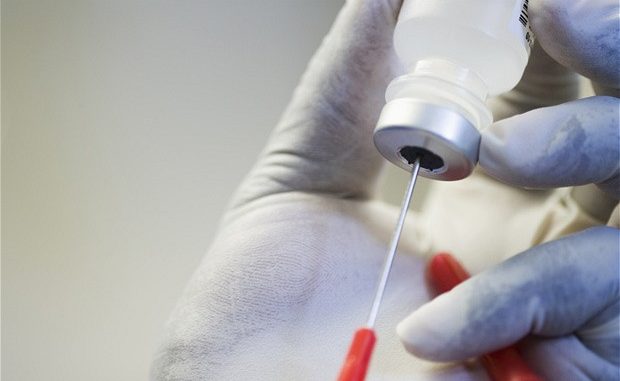
Scientists claim they have taken a “very positive step” towards creating a universal vaccine against cancer.
A team of scientists from Germany’s Johannes Gutenberg University have come up with a vaccine that makes the body’s immune system attack tumours as if they were a virus.

BYPASS THE CENSORS
Sign up to get unfiltered news delivered straight to your inbox.
You can unsubscribe any time. By subscribing you agree to our Terms of Use
Latest Video
The vaccine showed promising results in fighting “aggressively growing” tumours when tested on mice. Patients with advanced stages of skin cancer then took part in a trial.
Commenting on the new research which was published in Nature, cancer experts Professor Jolanda de Vries and Professor Carl Figdor, from Radboud University in the Netherlands, wrote: ‘This nanomedicine platform may give a strong boost to the vaccine field, and the results of forthcoming clinical studies will be of great interest.’
Professor Alan Melcher, from the Institute of Cancer Research, said: ‘Although the research is very interesting, it is still some way away from being of proven benefit to patients.’
The Independent reports:
Writing in Nature, an international team of researchers described how they had taken pieces of cancer’s genetic RNA code, put them into tiny nanoparticles of fat and then injected the mixture into the bloodstreams of three patients in the advanced stages of the disease.
The patients’ immune systems responded by producing “killer” T-cells designed to attack cancer.
The vaccine was also found to be effective in fighting “aggressively growing” tumours in mice, according to researchers, who were led by Professor Ugur Sahin from Johannes Gutenberg University in Germany.
“[Such] vaccines are fast and inexpensive to produce, and virtually any tumour antigen [a protein attacked by the immune system] can be encoded by RNA,” they wrote
“Thus, the nanoparticulate RNA immunotherapy approach introduced here may be regarded as a universally applicable novel vaccine class for cancer immunotherapy.”
The paper said the three patients were given low doses of the vaccine and the aim of the trial was not to test how well the vaccine worked. While the patients’ immune systems seemed to react, there was no evidence that their cancers went away as a result.
In one patient, a suspected tumour on a lymph node got smaller after they were given the vaccine. Another patient, whose tumours had been surgically removed, was cancer-free seven months after vaccination.
The third patient had eight tumours that had spread from the initial skin cancer into their lungs. These tumours remained “clinically stable” after they were given the vaccine, the paper said.
The vaccine, which used a number of different pieces of RNA, activated dendritic cells that select targets for the body’s immune system to attack. This was followed by a strong response from the “killer” T-cells that normally deal with infections.
Cancer immunotherapy is currently causing significant excitement in the medical community.
It is already being used to treat some cancers with a number of patients still in remission more than 10 years after treatment.
While traditional cancer treatment for testicular and other forms of the disease can lead to a complete cure, lung cancer, melanoma, and some brain and neck cancers have proved difficult to treat.
Being able to inject an effective treatment into a patient’s bloodstream would be a significant step forward. The vaccine also produced limited flu-like side-effects in contrast to the extreme sickness caused by chemotherapy.


